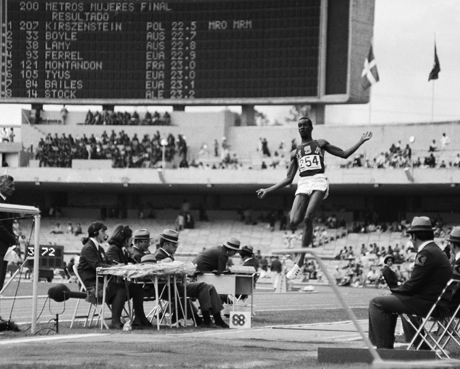The 400 Meter Hurdles
In medical school, these are the first two years, the basic sciences. Why? Well, you sprint for a few weeks, learning a wide swath of material, only to face a hurdle at the end: the test or shelf exam. Like the sport, it is important to pace yourself and most importantly clear those hurdles. Especially as a first year medical student, learning how to learn medical knowledge may be the key thing to take away from these courses rather than any particular fact or figure.
The 10,000 Meter Run
Middle distance running does not have the glamour of the 100 meter dash or the sheer respect one must have for a marathon. Similarly, USMLE Step 1 feels like an interminable slog yet it is something every MD goes through. Like the 10k, studying for Step 1 is all about pacing. You want to start strong but steady through the first 9k, saving up for that last 1k when it turns into a sprint. Step 1 works the same way: that last week and test day are an all-out burst of knowledge, unloading everything you learned in the two years before.
The Decathlon
The clinical years really stretch a medical student in all kinds of directions, much like the decathlon. You're delivering babies, treating patients with cancer and heart attacks, and participating in code situations. You have to be versatile and quick to adapt. Much like the decathlon, it's not important that you "win" every race - you do not have to be the best medical student in surgery and pediatrics and neurology. What matters is performing at a high level in each specialty. A decathlete can often win the decathlon without winning any one of the 10 events. Similarly, focus on performing at a high level and maintaining that momentum moreso than being the best at any one area.
The Long Jump
Making the move from medical school to internship and residency is a big deal. You go from being the student in the corner, barely acknowledged at times, to "Doctor, the patient's potassium is 4.5 - what do you want to do? Doctor, the ultrasound tech thinks there may be an ectopic, what do we do? Doctor, the x-ray shows a possible tension pneumo?" So many decisions! Many of which you will be ill-equipped for on Day 1. But never fear - like the long jump, you push off from the end of the runway of medical school and have faith that your preparation will carry you to where you need to be.
 |
| Bob Beamon, one of the greatest long jumpers ever, setting the world record in Mexico City 1968 |
The Marathon
The epitome of the Olympic Games is the marathon. The 26.2 miles are a true test of human endurance and the human spirit. The road past medical school is much the same way - it is important to maintain the momentum you built in medical school. As cliche as it sounds, being a good physician really is about lifelong learning.
What do you think? Do these sports match up with these phases of medical school? No matter where you are in your education, hopefully you can take some time away from medicine and enjoy London 2012!
Updated 2015-12-25
No comments:
Post a Comment